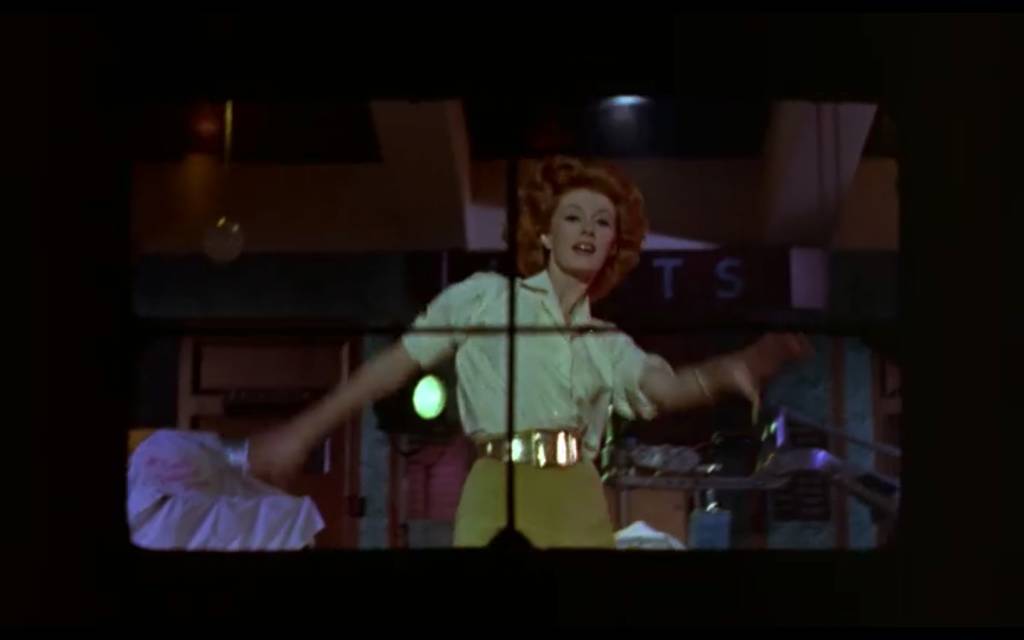
Film Matters: Please tell us about your article that is being published in Film Matters.
Clare Matthews: My article “Seeing Triple: Identification and Gamic Vision in Film and FPS Games” investigates the subjective shot as used in film and first-person shooter (FPS) video games. It addresses questions of identification, and looks at the theoretical basis for the generally problematic nature of the subjective shot in film and also its successful use in FPS games. It includes in-depth analysis of Being John Malkovich and Peeping Tom, and identifies a novel class of subjective shot as used in these films, involving the merging of three looks, that is non-problematic.
FM: What research and/or methodologies do you incorporate in your article?
CM: The starting point of the article is the concept of gamic vision, as proposed by Alexander Galloway in his book Gaming: Essays on Algorithmic Culture. As well as a detailed study of this, I also considered questions of identification as proposed by Christian Metz. I undertook a close textual analysis of Being John Malkovich and Peeping Tom, looking particularly at issues of identification related to the subjective shot and comparing this with use in FPS games.
FM: Describe the original context for/when writing this article while an undergraduate student.
CM: This originated as an essay for a second-year module on “Theorising Spectatorship,” starting with the concept of gamic vision as used in FPS games. While not a computer game aficionado, I became intrigued by the concept of the subjective shot. I investigated in detail this concept as used in two films studied for other reasons in the module.
FM: How has your department and/or institution supported your work in film and media?
CM: The staff in the Film Studies department of Anglia Ruskin University have provided interesting and stimulating lectures and seminars on a wide range of topics that have greatly broadened and enhanced my knowledge and appreciation of film. I have enjoyed many interesting and wide-ranging discussions with staff, who have been very generous with their time.
FM: How has your faculty mentor fostered your advancement as a film scholar?
CM: Dr. Tina Kendall, who was leading and presenting the module, is entirely responsible for me developing and submitting the article for publication. She provided very positive and generous feedback on my original essay, and suggested I consider submitting it for publication in Film Matters. She indicated aspects of the essay in need of attention and guided me through the process. In particular, she encouraged me to expand and highlight the novel aspects of my observations, giving me confidence that I can make a contribution to film scholarship. Without her encouragement and support this would not have happened, and I am very grateful to her for this.
FM: How has the Film Matters editorial and publication process impacted the development/evolution of your article?
CM: The process has allowed me to expand my original essay to present more fully and clearly my original observations and contributions. In revising the piece for submission, I tried hard to understand the requirements and criteria for publication, and I was encouraged by the generally positive comments received during the peer review process.
FM: What audience do you hope to reach with your Film Matters article and/or what impact do you hope it has on the field of film studies?
CM: The article is aimed at a wide audience, and not just gamers. Because it discusses issues of identification, I hope it will be of interest to the general reader. I have deliberately tried to keep the piece jargon-free and to explain matters in simple terms so as to make it readily accessible.
FM: What are your future plans?
CM: After completing two years of my course, I am currently intermitting, waiting for normal service to be resumed post-pandemic. At present I am working on improving my birdsong recognition skills.
Author Biography
On retirement following a career as a Patent Attorney in London and Cambridge, Clare Matthews decided to pursue her lifelong interest in film by embarking on a full-time undergraduate Film Studies course at Anglia Ruskin University. She is currently intermitting after two years of study, waiting for normal service to be resumed post-pandemic.







































